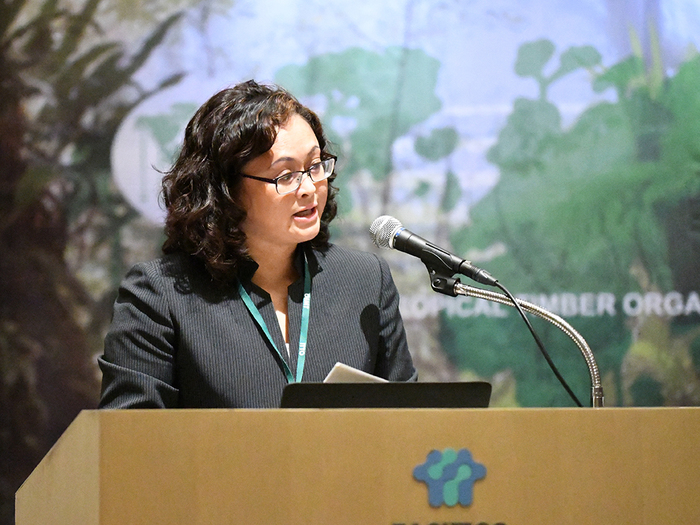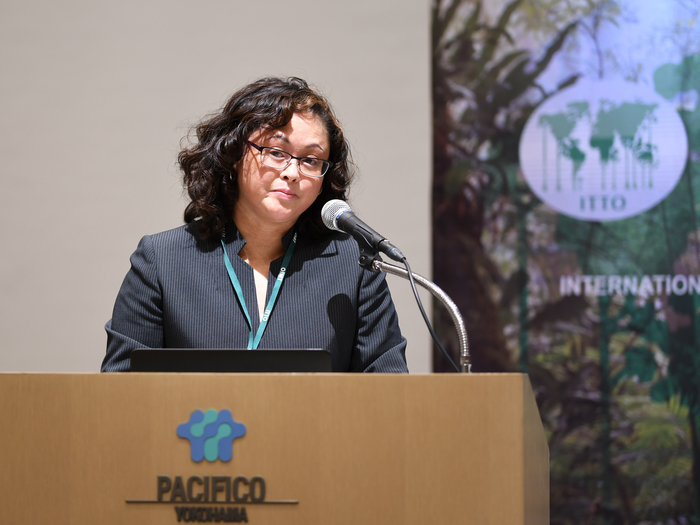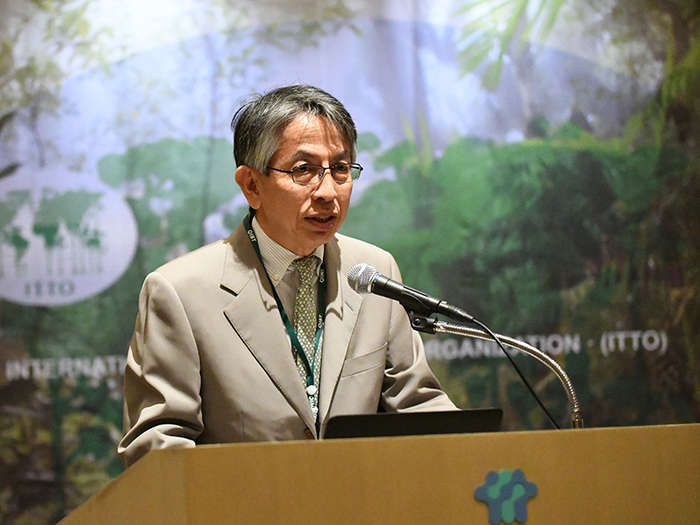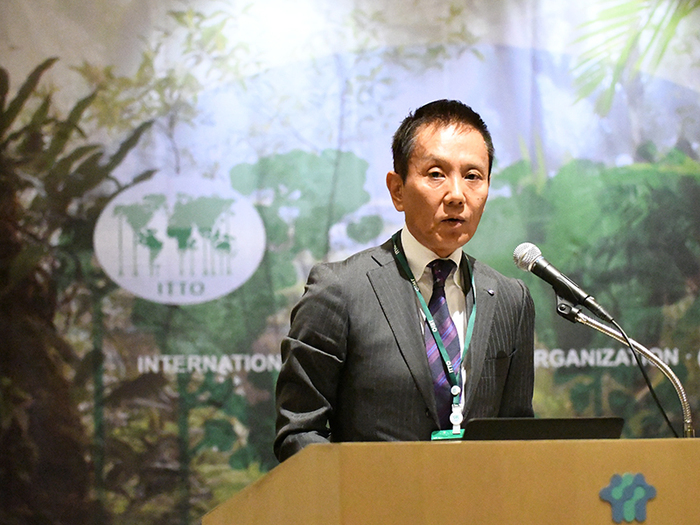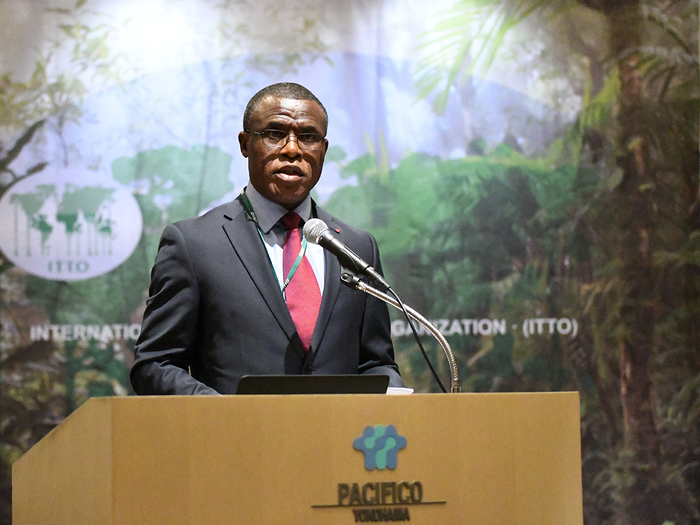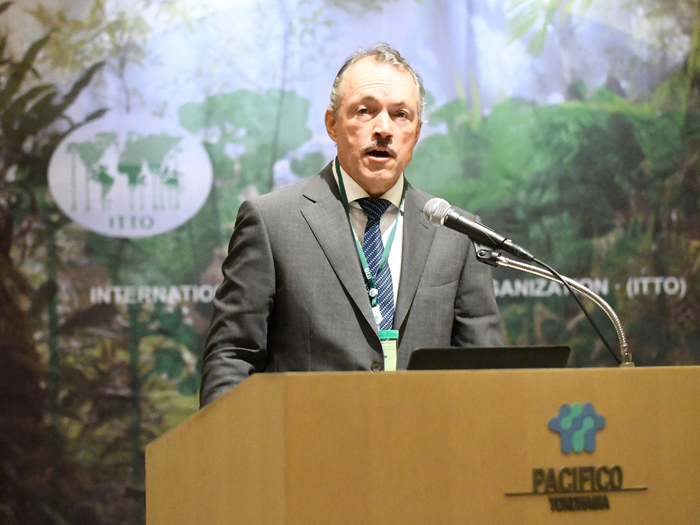Speaking in Yokohama at the opening of the 52nd session of the International Tropical Timber Council on 7 November 2016, Council Chair Jennifer Conje encouraged the Council to take “important decisions” at the session to build a more accountable, efficient and effective organization after financial losses.
The Council’s 52nd session presents an opportunity for change in addressing two issues of considerable importance for the future of ITTO, said Ms Conje. One of these is the appointment of a new executive director, a process that began in 2014 and is yet to be resolved. The other is a major financial impairment.
As a result of decisions and actions taken more than two years ago by past management, said Ms Conje, ITTO has experienced a huge loss to its financial health, with major repercussions for a wide range of stakeholders. But she asked Council members to reflect on the vast amount of good the Organization had done in its 30 years.
“In the midst of the financial cloud hanging over our heads, and the debates of this week, let us not lose sight of what we are truly trying to save here,” she said.
Ms Conje outlined the actions taken to date by the Organization to address the crisis, including:
• undertaking initial legal actions against some of the individuals/entities involved with the impaired investments;
• establishing the Oversight Committee and an expert panel on the revision of ITTO financial and staff rules and procedures; and
• undertaking a thorough review and audit of all of ITTO’s accounts to clearly determine its obligations, liabilities and resources available to bring to bear on solving the problem.
The Oversight Committee and expert panel, said Ms Conje, have made “important and extensive” recommendations for the Council’s consideration.
Ambassador Koichi Aiboshi, Assistant Vice-Minister for Global Issues in Japan’s Ministry of Foreign Affairs, also speaking at the Council’s opening session, said that, should the Council fail to restore trust in ITTO, donors would have difficulty obtaining the support of their taxpayers for contributing to it. Nevertheless, he said, Japan is resolved to make the utmost efforts to find the necessary solutions.
Makoto Sekiyama, Director General of the International Affairs Bureau at the City of Yokohama, thanked ITTO for its contributions to educating young people in the city about tropical forests, and he expressed the City of Yokohama’s ongoing support for the Organization.
“We would like to continue cooperation with ITTO, other international organizations, citizens of the city, and local businesses to develop a sustainable city, conserve tropical forests and improve the global environment,” he said.
H.E. Ngole Philip Ngwese, Cameroon’s Minister of Forests and Wildlife, said at the opening that Cameroon believed in ITTO and its remit, and that Cameroon would always stand by its international commitments. He noted, however, that several Council-approved projects from Cameroon had recently failed to attract funding, and he urged members to continue supporting the work of the Organization.
Dr Steven Johnson, ITTO Officer-in-Charge, said that ITTO needed a new Executive Director who is seen both within the Organization and internationally to command the support and respect of the entire membership. The new Executive Director, he said, would have the opportunity to transform both the Organization as it recovers from the financial crisis, and the Secretariat, where several key posts remain vacant.
Dr Johnson also set out what he saw as some of ITTO’s comparative advantages, perhaps the biggest one being the ability to put policies and guidelines adopted by Council into action through projects, thanks to generous voluntary contributions from donors.
“In its 30 years, the Organization has been a very effective project manager,” he said, “and we have had a substantial positive impact on tropical forest management and fostering a sustainable tropical timber trade.”
During the session, the Council will consider decisions dealing with the revision of the ITTO financial rules and procedures, the staff regulations and rules, and guidelines for fairly and transparently addressing the financial shortfall.
The Council will also, as usual, receive progress reports on ongoing activities under the ITTO Thematic Programmes; the Biennial Work Programme; collaborative programmes with CITES and the Convention on Biological Diversity; and developments relevant to tropical forests taking place in the UN Framework Convention on Climate Change. The Council will also undertake its biennial review of the world timber situation and convene the Annual Market Discussion, which this year will be on the theme, “free trade agreements: challenges and opportunities for the tropical timber trade”.
The International Tropical Timber Council meets at least once a year to discuss a wide-ranging agenda aimed at promoting sustainable tropical forest management and the trade of sustainably produced tropical timber.
Daily coverage of the session by the Earth Negotiations Bulletin is available at http://www.iisd.ca/forestry/itto/ittc52/

